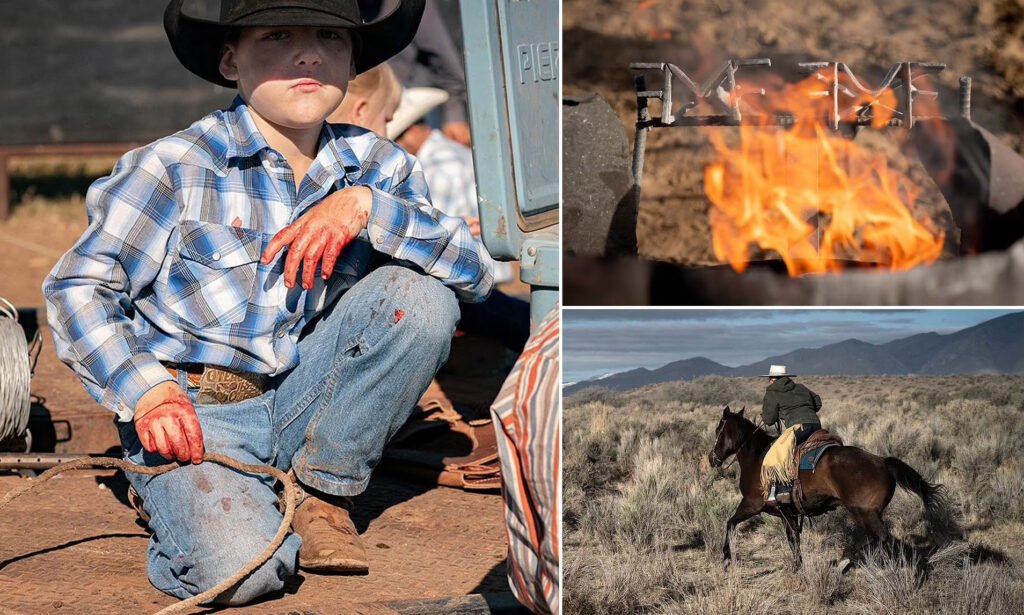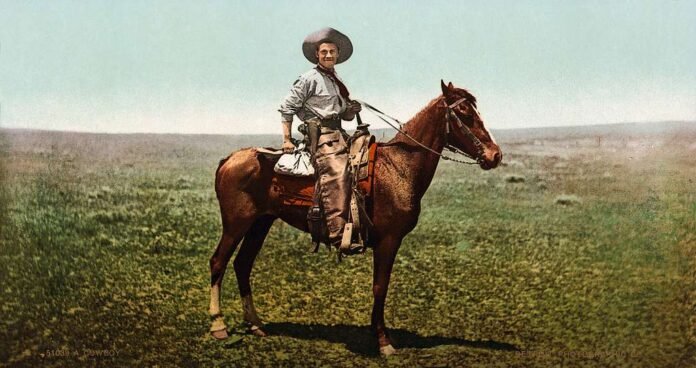Hurrah! Get comfortable, everyone, because we’re going to explore the fascinating realm of cowboys today. For generations our imaginations have been captivated by these great personalities’ raw charm, bold attitude, and unmistakable swagger. However, who exactly are the cowboys? Do they still exist today, or are they merely fictional characters from vintage western films? Come along with me as we explore the contemporary cowboy lifestyle and principles, dispel myths, and discover the intriguing history—all while embracing our inner westward enthusiasts. Now put on your boots and hat and get ready to embark on an exciting journey through cowboy country!
The History of Cowboys
The history of cowboys is deeply rooted in the American West, where vast landscapes and untamed frontiers shaped their way of life. Cowboys emerged in the mid-1800s as skilled horsemen who worked on cattle ranches, herding and driving cattle across long distances. These rugged individuals faced countless challenges – from harsh weather conditions to encounters with outlaws and wild animals.
Contrary to popular belief, cowboys came from diverse backgrounds. They were a mix of Native Americans, Mexican vaqueros, African-Americans, and European immigrants seeking new opportunities in the frontier. Together, they formed a unique culture that blended different traditions and skills.
During the golden age of cowboys in the late 19th century, legendary figures like Billy the Kid and Wyatt Earp became synonymous with their image. The romanticized portrayal of cowboys in dime novels and later Hollywood westerns further cemented their iconic status.
However, it’s essential to recognize that cowboy life was not all gunfights at high noon or daring bank robberies. It involved hard work – hours spent on horseback tending to livestock or fixing fences under scorching sun or freezing temperatures.
As time went on and technology advanced, traditional cowboy roles began to evolve. The advent of barbed wire fencing led to fewer open ranges for cattle drives; railroads made transportation more efficient; mechanization changed farming practices altogether.
Stereotypes vs Reality
When we think of cowboys, our minds often conjure up images from old Western movies: rugged men on horseback, wearing wide-brimmed hats and spurs. But is this portrayal an accurate reflection of who cowboys really are?
In reality, the image of the cowboy is much more diverse than what Hollywood has depicted. Cowboys come from all walks of life and can be found in various regions across the world. They aren’t just men either – women have long been a part of the cowboy tradition as well.
Another stereotype that often comes to mind is that cowboys spend their days herding cattle on vast open ranges. While this may be true for some, many modern-day cowboys have diversified their careers beyond ranching. Some work in rodeos or participate in competitive events such as roping or barrel racing.
The truth is that being a cowboy isn’t just about riding horses and tending to livestock; it’s a way of life rooted in tradition and values. Hard work, independence, and respect for nature are at the core of the cowboy ethos.
Cowboys are renowned for having a strong sense of belonging and companionship. They rely on each other during round-ups and branding seasons, forming tight-knit bonds with fellow riders.
Modern-Day Cowboys: Careers and Lifestyle

When we think of cowboys, images of the Wild West often come to mind – rugged men on horseback herding cattle across vast open plains. While this traditional cowboy lifestyle still exists in some pockets of the United States, modern-day cowboys have evolved beyond just wrangling livestock.
Today, being a cowboy is more than just a career or a job title; it’s a way of life. Modern-day cowboys can be found in various industries and sectors, from ranching and rodeo to fashion and entertainment. They embody the spirit of determination, resilience, and independence that has been associated with their predecessors.
In the ranching industry, modern-day cowboys play an essential role in managing livestock operations. They are responsible for tasks such as branding cattle, maintaining fences and corrals, caring for sick animals, and ensuring proper grazing management.
The Code of the Cowboy: Values and Principles
Cowboys are known for their unwavering commitment to a set of values and principles that guide their way of life. These core beliefs have been passed down through generations, shaping the cowboy culture we know today.
One key value that defines cowboys is integrity. Honesty and trustworthiness are paramount in their interactions with others, whether it’s on the ranch or out on the open range. Cowboys strive to do what is right, even when no one is watching.
Another fundamental principle among cowboys is resilience. Life as a cowboy can be tough, filled with long hours of hard work and unpredictable weather conditions. Yet, they persevere through adversity, never giving up on their responsibilities or duties.
Self-reliance is also deeply ingrained in the cowboy way of life. Cowboys pride themselves on being self-sufficient and resourceful. They possess a unique ability to adapt to challenging situations without relying heavily on external assistance.
Conclusion
Cowboys have a rich and storied history that has shaped American culture. They are more than just the romanticized images we see in movies and books – they are hardworking individuals who embody values of independence, perseverance, and honor.
From their origins as cattle herders on the open range to their modern-day roles in various industries, Cowboys continue to play an important role in society. Their careers may have evolved over time, but their love for the land and dedication to their work remains unchanged.
The Code of the Cowboy, with its principles of honesty, integrity, loyalty, and respect for others, serves as a guidepost not only for those pursuing a cowboy lifestyle but also for anyone looking to live with purpose and virtue.
So whether you find yourself on horseback wrangling cattle or working diligently at your desk with a cowboy spirit within you – remember that being a cowboy goes beyond profession; it’s about embracing a mindset focused on hard work, resilience, and staying true to oneself.


